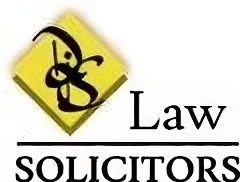Damages for distress?
Damages for distress?
Introduction:
An individual who experiences the negligence of a professional may well feel that they are entitled not only to financial loss by way of compensation, but also additional compensation for frustration, distress and anxiety.
The House of Lords case of Farley v Skinner [2001] UKHL 49 held that damages for anxiety, distress and inconvenience are not recoverable unless a major or important object of the retainer was to provide pleasure, relaxation or peace of mind. In this case, Mr Farley received damages of £10,000 against Mr Skinner, a surveyor, for distress and disappointment caused by Mr Skinner’s failure to advise that the house Mr Farley was seeking to purchase was adversely affected by aircraft noise from aircraft waiting to land at Gatwick.
Gabriele Shaw v Leigh Day (a firm):
In Gabriele Shaw v Leigh Day (a firm) 2017 EWHC 825 (QB) Andrews J allowed the Appellant’s appeal against the striking out of her professional negligence claim against the Respondent’s solicitors.
The facts, in brief, were that Mrs Shaw’s father died following a surgical procedure to implant a trans-aortic valve. Mrs Shaw suspected that there had been clinical negligence on the part of the surgeon, hospital, or both and instructed the Respondent solicitors to advise and represent her at the Inquest of her father’s death.
Although the Inquest made no adverse findings against the hospital or the consultant cardiologist who performed the operation, Mrs Shaw instructed the Respondent solicitors to begin clinical negligence proceedings against the hospital and the consultant cardiologist on behalf on her father’s Estate.
Mrs Shaw became increasingly dissatisfied with the service that she was receiving from the Respondent solicitors, and the cost, with the relationship between Mrs Shaw and the Respondent solicitors eventually breaking down. The Respondent solicitors ceased acting for Mrs Shaw (and the Estate) and came off the Court record in the clinical negligence proceedings.
Andrews J allowed Mrs Shaw’s appeal on the basis that “Inquests have an emotional element that is unique, and absent from other forms of legal process. If the solicitor is retained to put the necessary materials before the Coroner and the jury does not carry out his or her job with sufficient diligence, the client will never receive that comfort” (para 28). In the clinical negligence claim damages were awarded to the Estate in the sum of £13,686.17. The professional negligence action was remitted to the District Judge for a case management hearing.
Comment:
This case does not alter the general rule that if professionals act negligently, a client will not be able to seek an award of damages to compensate them for any distress or inconvenience caused by their behaviour. It does suggest, however, that in highly emotional matters, an exception will be made on public interest grounds. For Inquest cases, this will invariably mean that the circumstances surrounding the death of a family member or loved one are sufficiently investigated to provide the family with an answer to the question of why their loved one died, in order to provide closure.
Contact Us
Get in touch with DJS Law for expert legal advice and representation. Our dedicated team is ready to assist you with a wide range of legal matters. Whether you have questions, need a consultation, or require immediate assistance, we’re here for you. Reach out to us via phone, email, or by filling out the contact form below. Your legal solution starts with DJS Law.
